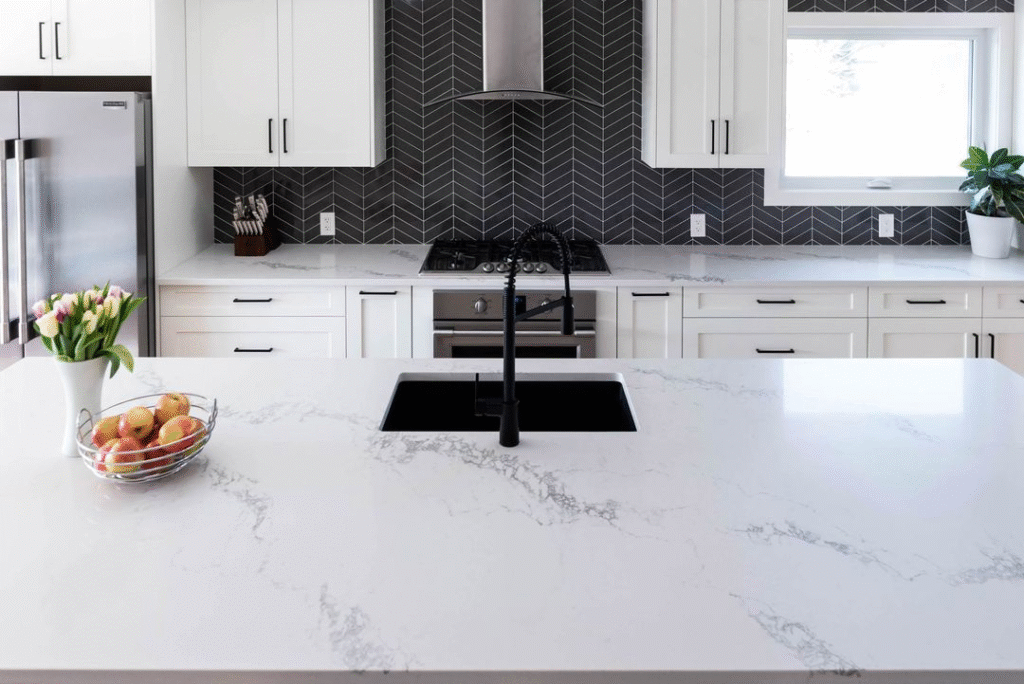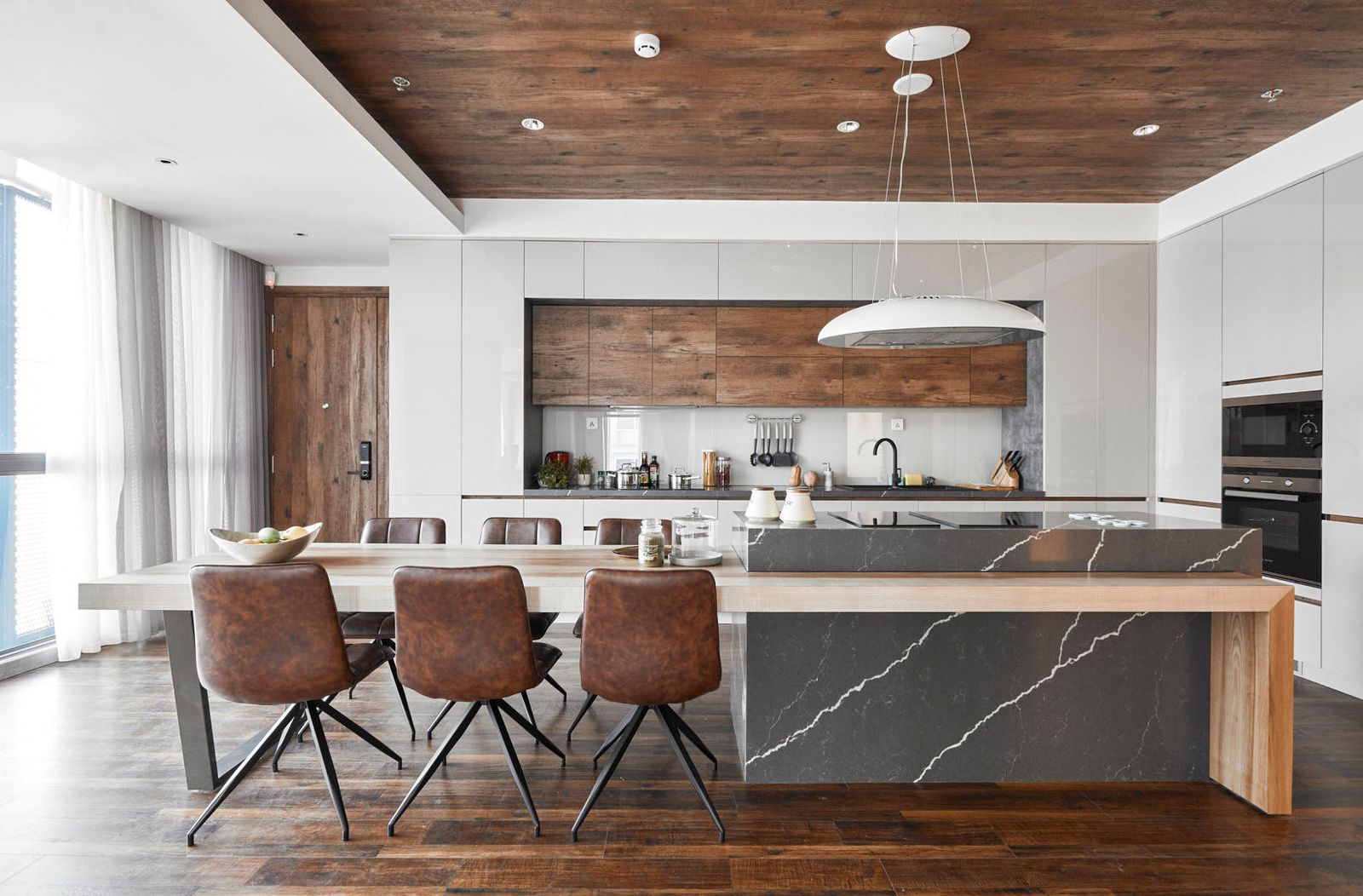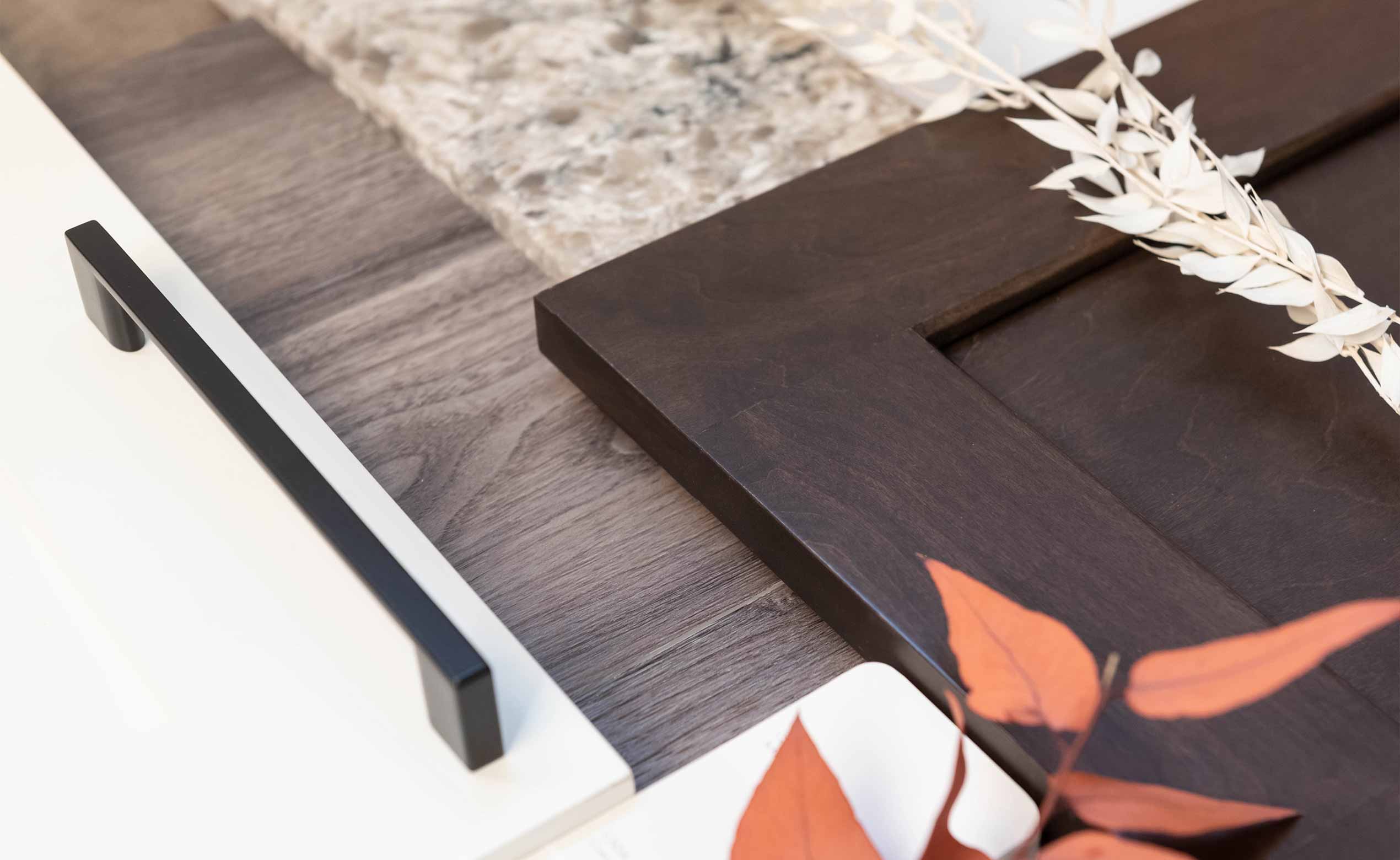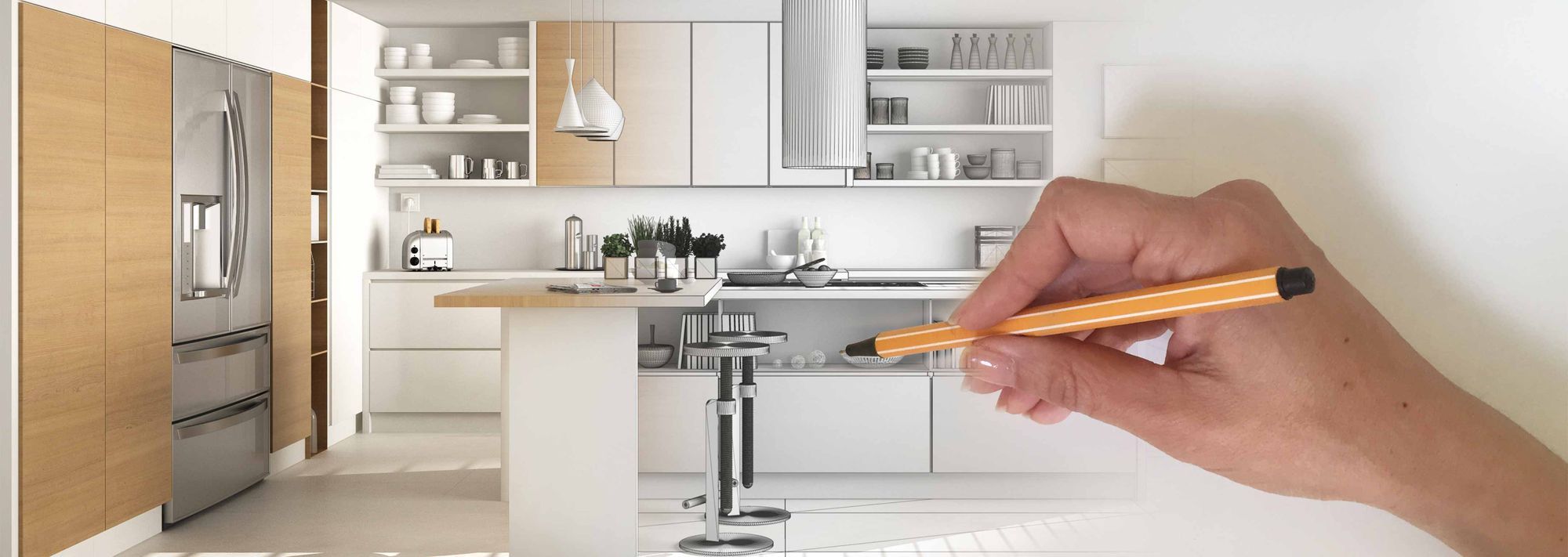What Makes Quartz Unique
Quartz is an engineered stone made from natural quartz crystals combined with resins and pigments. This process creates a dense, non-porous surface that resists stains, moisture, and bacteria. Because of its structure, quartz does not require sealing like granite or marble, and it is less likely to chip or scratch under normal use.
Its smooth finish, wide range of colors, and resistance to damage make quartz an ideal material for high-traffic spaces. However, proper care still plays a role in protecting the surface over time.
How to Clean Quartz Countertops Every Day
For daily cleaning, a simple and consistent approach is best. Here’s what works well:
- Use a soft cloth or non-abrasive sponge. Combine warm water with a few drops of mild dish soap. Gently wipe down the surface to remove crumbs, fingerprints, or light spills.
- Rinse the area with clean water. This helps remove any soapy residue that can build up and leave streaks.
- Dry the surface with a microfiber cloth. This step keeps your counters looking polished and helps prevent water spots.
You do not need to use special cleaners every day. In fact, using overly harsh products can wear down the protective finish over time.
Natural Disinfecting Option for Quartz Countertops
If you want to disinfect your countertops after cooking or food prep, you can mix equal parts of water and isopropyl alcohol in a spray bottle. Spray lightly and wipe dry with a clean cloth. This solution kills most surface bacteria without damaging quartz.
Avoid using household disinfectant wipes or products containing bleach. These can dull the surface or react with the resins used in quartz fabrication.

Best Ways to Disinfect Quartz Countertops
How to Effectively Remove Stains and Buildup on Quartz Countertops
Even though quartz resists stains, some spills and messes can be tougher to clean if left too long. Here is how to clean quartz countertops when you are dealing with more stubborn messes.
Dried Food or Residue
If something sticks to the surface, soak the area with warm, soapy water for a few minutes. Then gently scrape the mess using a plastic putty knife or a soft-edged tool. Avoid using metal scrapers, as these can leave scratches.
Grease and Oil Spots
Cooking oils and greasy splatters can leave a film. Use a quartz-safe glass cleaner or a degreasing product designed for stone surfaces. Apply to a cloth and gently clean the affected area.
Markers, Ink, or Dye
Permanent marker, ink, or even some food coloring can leave behind stains. Dab a cloth with rubbing alcohol and gently rub the stain in a circular motion. Rinse the area afterward to remove any alcohol residue.
Hard Water Marks or Soap Scum
In bathrooms or around sinks, quartz can develop dull spots from mineral buildup. Use a mix of water and vinegar on a damp cloth to gently wipe the area. Be careful not to use vinegar regularly, as repeated use of acidic cleaners can break down the resin over time. Use this method only when needed, and rinse well afterward.
What to Avoid on Quartz Surfaces
Caring for quartz also means avoiding a few common mistakes that could cause long-term damage. Here is what to keep off your quartz countertops:
Harsh Chemicals
Do not use bleach, ammonia, oven cleaners, or anything with high acidity or alkalinity. These products can cause the resin in quartz to discolor, dull, or weaken.
Abrasive Scrubbers
Skip steel wool, scouring pads, or textured sponges. These can scratch the finish and leave marks that are difficult to repair.
Extreme Heat
Quartz can withstand moderate heat, but sudden changes in temperature can cause cracks. Do not place hot pans or baking sheets directly on the surface. Always use a trivet or heat-resistant mat.
Sharp Knives
While quartz is scratch-resistant, it is not scratch-proof. Avoid cutting directly on the surface. Use a cutting board to protect both your knives and your counters.
Excessive Weight
Avoid sitting or standing on your countertops. The corners and edges are more vulnerable to cracking under pressure, even if the surface looks solid.
If you’re wondering how much weight your countertop can safely support, take a look at our guide on Quartz Countertop Weight & Load Capacity.
Best Practices for Long-Term Care for Your Quartz Countertops
Quartz is designed to be low maintenance, but adopting a few smart habits will help preserve its look and performance for years.
- Clean spills as soon as they happen, especially from coffee, wine, lemon juice, tomato sauce, and vinegar. These acidic substances can cause dull spots if left too long.
- Wipe down quartz countertops regularly with a soft cloth and mild soap to prevent buildup.
- Use cutting boards, trivets, and coasters in everyday use. These small steps go a long way toward preventing damage.
- Choose quartz-specific or stone-safe cleaners for deeper cleaning once a week or as needed.
- Avoid leaning or placing heavy appliances directly on countertop edges.

Essential Tips for Maintaining Quartz Countertops Long-Term
Can You Use Commercial Cleaners for Quartz Countertops?
There are many stone-safe cleaning products available, but always read the label before using anything new. Look for quartz-safe or non-abrasive formulas. Avoid products with lemon, vinegar, bleach, or strong solvents unless specifically labeled for use on quartz.
If you’re ever unsure, test the cleaner on a small, hidden area before using it across the entire surface.
Do Quartz Countertops Ever Need Sealing?
No. One of the advantages of quartz is that it does not require sealing. Unlike granite or marble, quartz is non-porous and does not absorb liquids. This built-in resistance helps protect against stains, moisture, and bacteria without additional treatment.
If you’re asking how to clean quartz countertops, the answer is simple. Gentle cleaning, consistent habits, and avoiding harsh products are all it takes to keep your surfaces looking new. Whether you’re wiping up spills after dinner or giving your kitchen a deep clean before guests arrive, a little care goes a long way.
Quartz countertops offer a beautiful, practical solution for modern homes. With the right approach, you can enjoy their sleek look and durability for decades to come.
Want to see how quartz compares to other materials? Explore our full guide on countertop surface types for kitchens to find the best fit for your home.
If you’re exploring countertop options or planning a kitchen refresh in Calgary, don’t go it alone. Request a free design consultation and get personalized guidance from our expert team.






